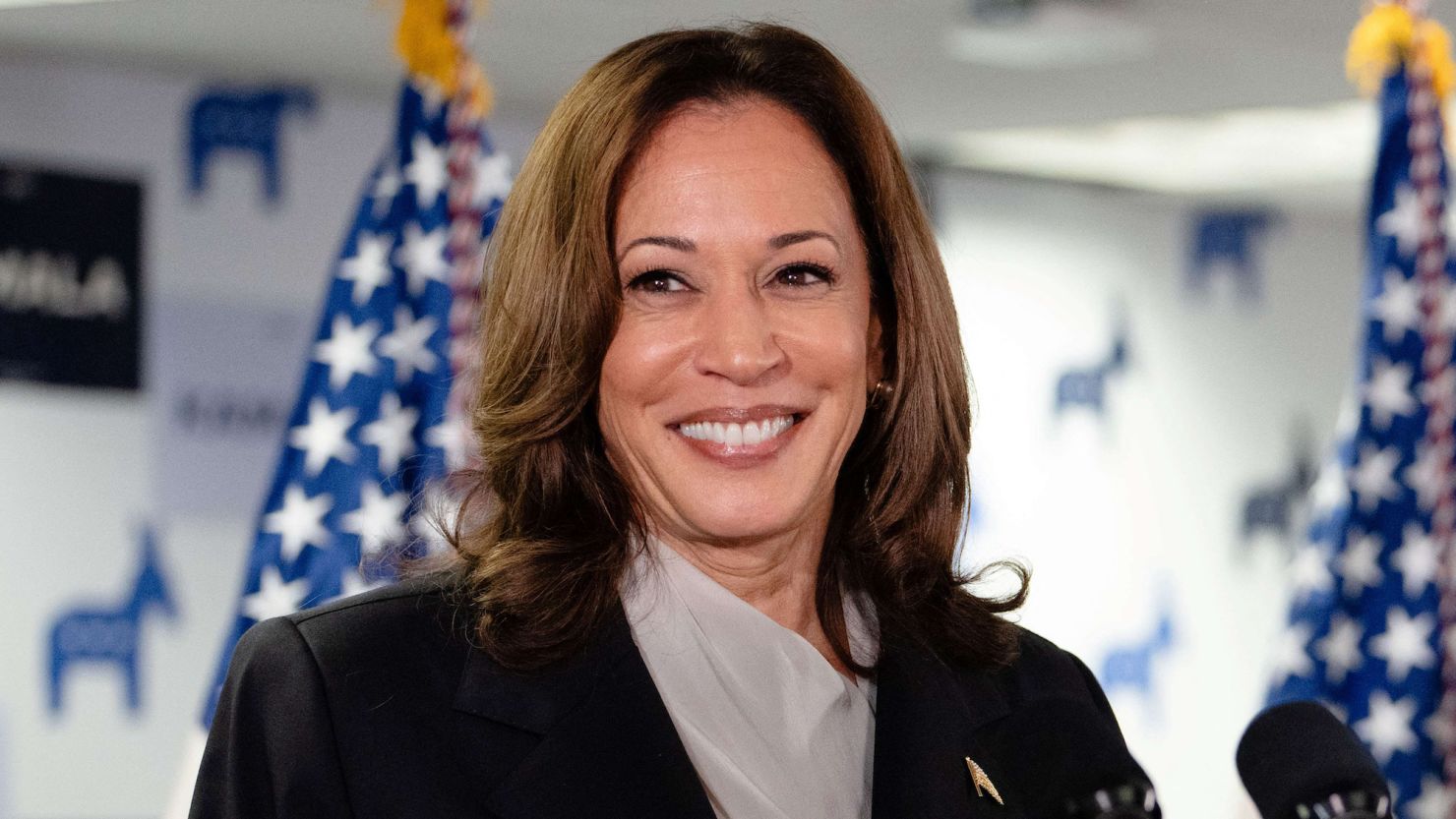The Democratic National Committee is moving forward with a process that will determine the party’s presidential nominee by August 7, party officials said Monday night, shortly before Kamala Harris secured enough delegate endorsements to win the Democratic nomination.
The party’s decision to move forward with a remote voting process came just a day after President Joe Biden’s stunning announcement to drop out of the 2024 race and endorse Harris. The vice president has now been backed by well more than the 1,976 pledged delegates she’ll need to win the nomination on the first ballot, according to CNN’s delegate estimate.
“While this situation is unprecedented, the process we are prepared to undertake is not,” Democratic National Convention Chair Minyon Moore said Monday. “We have important deadlines to meet. We will make sure the process is fair, because, as it stands, no candidate has secured a majority of the delegates to the convention.”
Democratic National Committee Chair Jaime Harrison also pledged to the party being “committed to an open and fair nominating process” that “reflects the dedication to democracy our party stands for.”
According to DNC officials and a document obtained by CNN, candidates will need to declare their interest in becoming the Democratic Party’s nominee for president by filing a formal?declaration?of candidacy,?meeting?party and legal qualifications to be president, and?gathering?at least 300 delegate signatures, with no more than 50 from a single state.
The window of time for candidates to declare their interest will be short, one DNC official said, and would end by this week.
Under the proposal, the DNC will share with delegates a candidate directory, which will include names and contact information for candidates to allow delegates to opt into information from campaigns.
However, while the DNC intends to have a Democratic nominee chosen by August 7, exactly when virtual voting would begin has yet to be determined and would depend on factors like how many candidates are ultimately able to obtain support from the necessary 300 delegates.
If only one candidate were to reach that threshold, for example, the party could move more quickly to begin the virtual voting process, the official said. If multiple candidates qualify, there would be a period of a few days for candidates to make their case to delegates.
A date for the start of the virtual voting process, therefore, has not yet been set, but it could be as early as August 1. The DNC has long made clear that it is committed to locking in its nominee before the convention begins – and specifically before August 7, which, it says, is critical to ensure ballot access in all states and avoid the risk of litigation. The party will hold its in-person convention in Chicago from August 19 to 22.
Party officials were less specific about the timing of the vice presidential nomination, saying that while they would give the future nominee the ability to finalize the choice by August 7, the exact schedule would be up to the candidate.
The rules will allow for candidates to file the necessary paperwork and to gather the signatures electronically.
Minnesota Democratic Gov. Tim Walz, chair of the DNC rules committee, told CNN’s Erin Burnett on “OutFront” on Monday night that the idea boils down to: “Anybody’s welcome to come in.”
“It is an open process; anyone is welcome,” Walz said. “The delegates who were selected?will cast their vote as they?see fit, and we will come out?with a nominee in?time” to get on the ballot in all 50 states, the governor, who has?endorsed Harris, said.
To win the nomination, a candidate will need the support of a majority of pledged delegates to the convention – 1,976 out of 3,949 pledged delegates, party officials said. The endorsements are not binding, and with Biden out of the race, delegates are free to vote for the candidate of their choice. However, Harris is backed by well more than the number needed.
While all delegates will receive ballots, votes cast by superdelegates – senior Democrats who serve as delegates by virtue of their position – will be counted on the first ballot only if one candidate has the support of enough pledged delegates to make up a majority of the full convention. That could be determined either by a candidate winning enough votes during remote balloting, or by gathering that many signatures.
The convention rules committee will vote Wednesday on the proposed rules, a Democratic official said.
This story has been updated with additional developments.
CNN’s Molly English, Matt Holt, Sydney Topf and Jack Forrest contributed to this report.




